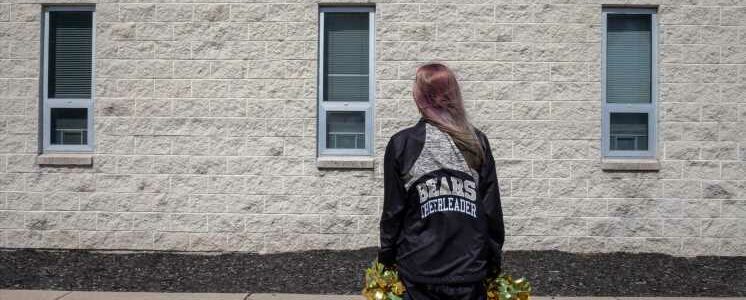
Supreme Court wary of giving schools broad power to punish students’ off-campus speech
WASHINGTON – A majority of Supreme Court justices Wednesday appeared wary of giving schools broad power to discipline off-campus student speech but also worried about tying principals’ hands when it comes to bullying, harassment and cheating.
In nearly two hours of oral arguments, the nation’s highest court heard the case of a high school student who was punished when she published a profanity-laden social media post after failing to make the school’s varsity cheerleading team.
The appeal from the Mahanoy Area School District in Pennsylvania has opened a debate on the extent of students’ First Amendment rights off campus – including through social media – when their speech has an impact at school days later, such as by disrupting the classroom or undermining the cohesion of a sports team.
Just how much the student’s speech in the case was disruptive has been a pervasive question as the dispute wound its way through lower federal courts.
First Amendment: Can schools discipline for off-campus student speech?
Speech: Chief Justice John Roberts to represent Supreme Court at Biden speech
Donors: Supreme Court conservatives question donor disclosure requirement
“I mean she used swear words, you know, unattractive swear words – off-campus. Did that cause a material and substantial disruption?” asked Associate Justice Stephen Breyer. “If swearing off-campus did, I mean, my goodness every school in the country would be doing nothing but punishing.”
As the justices grappled with how to draw a line on a school’s power to regulate speech, one theme emerged: A desire by both some of the court’s liberals and conservatives to craft a narrow ruling rather than one with broad First Amendment implications. Breyer said he was “frightened to death” of trying to write a legal standard for what is permissible.
Associate Justice Brett Kavanaugh said he agreed with Breyer that “we probably can’t write a treatise here and shouldn’t write a treatise here.”
Civil liberties groups fear the court will turn schools into speech police, limiting students’ First Amendment rights. School districts counter that they must be free to discipline off-campus speech that leaches into the classroom and the locker room, including to protect students from bullying that can be amplified online and miles from the schoolyard.
The case began when Brandi Levy, a rising sophomore at Mahanoy, failed to make the varsity cheer squad. She took to Snapchat, exhorting her followers to “F–––– school f–––– softball f–––– cheer f–––– everything.” She also included a picture of her and a friend – both of whom were off-campus at the time – raising their middle fingers.
Another student captured a screengrab of the message and showed it to the team’s coaches. Levy was booted from the junior varsity cheer squad and, after appealing to school authorities, her parents sued the district in federal court.
Brandi Levy wears her former cheerleading outfit while standing outside Mahanoy Area High School in Mahanoy City, Pa., on April 4, 2021. This photo was provided by the American Civil Liberties Union. (Photo: Danna Singer, AP)
At the center of the dispute is a landmark 1969 Supreme Court decision, Tinker v. Des Moines, that reaffirmed students’ First Amendment rights. But the court said that schools may regulate student speech in cases where it “materially disrupts” the operation of the school. The school district wants that same standard to apply to off-campus speech.
Kavanaugh, who has two school-age children, repeatedly questioned the reaction of the team and whether the punishment was a fit response to Levy’s post.
“As a judge and maybe as a coach and a parent, too, it seems like maybe a bit of an overreaction by the coach,” Kavanaugh said. “She blew off steam like millions of other kids have when they’re disappointed about being cut from the high school team or not being in the starting lineup or not making all league.”
Associate Justice Amy Coney Barrett, who has seven children, said that while there might be good “policy reasons” for extending a school’s authority beyond campus, such as bullying or cheating, she questioned what precedent the court could rely on to rule in favor of the school district.
“A lot of the questions that you’ve gotten today show a concern, including in this case, that schools abuse this authority, and that they punish things that maybe don’t cause substantial disruption – or political speech or religious speech that they shouldn’t,” she told the lawyer for the district.
A federal district court ruled for Levy in 2019, finding that – even if the Tinker standard applied off-campus – the speech she used wasn’t disruptive enough to trigger disciplinary action. The Philadelphia-based U.S. Court of Appeals for the 3rd Circuit took the decision a step further, finding that Tinker does not apply to off-campus speech.
The Supreme Court is set to decide the case in June.
Source: Read Full Article
